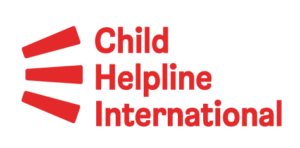A few weeks ago, I had the honour to participate in the 2nd meeting of the recently established EU Network for Children’s Rights, representing Child Helpline International as Deputy Regional Representative for Europe. Organised by the office of the European Commission Coordinator for the Rights of the Child at DG Justice and Consumers, the meeting took place on 16 March in Brussels. I was among the few participants to join online, as at the very last minute my flight to Brussels was cancelled due to a major 24-hour strike in Greece! While I was not able to benefit from the in-person tête-à-tête contacts and interaction I had hoped to make, I nonetheless had the chance to become better informed of important EU initiatives in the field of children’s rights and to bring this information to our European network of child helplines.
The EU Network for Children’s Rights was officially launched on 31 March 2022 by Vice-President Šuica and is a key commitment in the EU Strategy on the Rights of the Child. The Network is composed of Member States and EU institutions, and also includes international and non-governmental organisations, representatives of local and regional authorities and children, for some activities. Its objective is to boost the exchange of information, good practices and mutual learning among EU Member States, the Commission and relevant stakeholders working on the rights of the child.
This was the second meeting of the Network chaired by Marie-Cécile Rouillon, EC Coordinator for the rights of the child, with the aim to provide an update on the implementation of the EU Strategy on the Rights of the Child (2021-2025) and sharing best practices from national developments. The two most important areas of discussion were two key initiatives under the EU Strategy, namely:
- The EU Children’s Participation Platform
- The Integrated Child Protection Systems Initiative.
The EU Children's Participation Platform
The EU Children’s Participation Platform is an initiative that is being established jointly by the European Parliament and child rights organisations, to connect existing child participation mechanisms at local, national and EU level, and involve children in the decision-making processes at EU level. The aim of the platform is to ensure meaningful, inclusive and safe child participation. The European Commission is developing the platform together with child rights organisations, academics, and a children’s panel. The platform will be piloted for four years in 14 member states.
The Integrated Child Protection Systems Initiative
This initiative is aimed at supporting the development and strengthening of integrated child protection systems, to encourage all relevant authorities and services to better work together in a system that puts the child at the centre. In 2023, there will be an open consultation, an additional meeting in the fall, as well as consultations with children and relevant EU agencies. The aim of this consultation is to map legislation, policies and practices, identify gaps and challenges and identify promising practices. The initiative will launch in 2024. During the meeting, the lessons that emerged were the importance of prevention, continuity, the involvement and cooperation of all professionals working in child protection, as well as trust and persistence in data management and unification.
The importance of child helplines in implementing EU child rights policy
While the specific meeting’s main value for Child Helpline International was to become better informed and updated on the state-of-play regarding the two initiatives, it also reinforced the need to highlight the key role of child helplines for integrated child protection systems, as well as the good practices of child participation in the child helpline network.
In this respect, it is important for us to follow developments closely, maintain a direct and continuous dialogue with the Office of the EC Coordinator on the Rights of the Child, and seek to participate in next meetings, respond to calls of interest and consultations and mobilise our members to relate their actions to the work of the EU Network and engage policy-makers in their member state to support the Network’s initiatives.
Child Helpline International’s Advocacy Strategy for Europe needs to be explicitly linked to the Network’s initiatives, emphasising that 116 111 child helplines are key stakeholders in child protection systems, as they often serve as the first point of contact for children, they have strong referral networks as they are connected to all official and non-governmental services, and they respond to a broad range of issues facing children.
Child helplines value is unique, and as such, the EC must take all necessary actions to support child helplines, including putting pressure on members states to support them.
I look forward to continuing to work within Child Helpline International with my fellow child helpline members on pushing this strategy forward!
Piji Protopsaltis
is the Coordinator of International Cooperation
at The Smile of the Child,
as well as Child Helpline International’s
Deputy Regional Representative
for the Europe Region.

